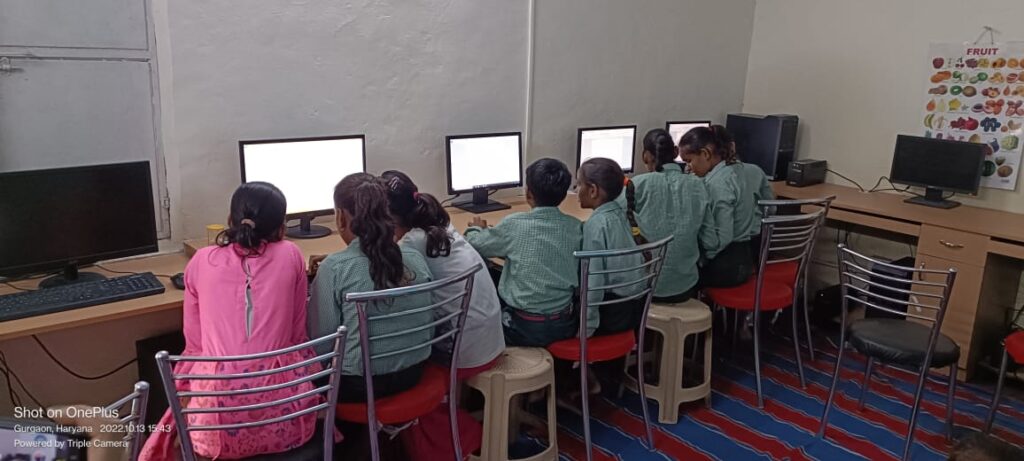Underprivileged youth refers to young individuals who come from disadvantaged backgrounds, often facing economic, social, and cultural barriers that limit their opportunities for growth and success. These barriers can include poverty, lack of access to education and training, limited job opportunities, and social and cultural biases. Skill development programs play a crucial role in empowering underprivileged youth by providing them with the necessary tools, knowledge, and resources to overcome these challenges and build a better future for themselves.
This blog post aims to highlight the importance of skill development programs for underprivileged youth, discuss the current challenges they face in skill development, explore the role of skill development programs in empowering them, examine the types of skills developed in these programs, analyze how these programs help secure better jobs for underprivileged youth, assess the impact of skill development programs on their lives, emphasize the importance of soft skills in skill development programs, discuss the role of mentors in these programs, address the challenges faced by skill development programs and how to overcome them, and provide best practices for developing effective skill development programs for underprivileged youth.
The Current Challenges Faced by Underprivileged Youth in Skill Development

Underprivileged youth face numerous challenges when it comes to skill development. One of the primary challenges is the lack of access to education and training. Many underprivileged youth do not have access to quality education or vocational training programs that can equip them with the necessary skills for employment. This lack of access further perpetuates the cycle of poverty and limits their opportunities for growth.
Financial constraints also pose a significant challenge for underprivileged youth in skill development. Many cannot afford to pay for education or training programs, making it difficult for them to acquire the skills needed to secure better job opportunities. Additionally, they may lack the financial resources to invest in tools or equipment necessary for certain skills.
Social and cultural barriers also hinder skill development for underprivileged youth. They may face discrimination or biases based on their socioeconomic status, gender, or ethnicity, which can limit their access to opportunities and resources. These barriers can affect their self-esteem and confidence, making it harder for them to pursue skill development.
Furthermore, limited job opportunities in their communities or industries can make it challenging for underprivileged youth to find employment even after acquiring skills. The lack of job prospects can discourage them from investing time and effort into skill development programs, as they may feel that their efforts will not lead to meaningful employment.
The Role of Skill Development Programs in Empowering Underprivileged Youth
Skill development programs play a crucial role in empowering underprivileged youth by addressing the challenges they face and providing them with the necessary support and resources to overcome these obstacles. These programs offer a range of benefits that contribute to the overall development and success of underprivileged youth.
Firstly, skill development programs provide underprivileged youth with access to education and training that they may not have otherwise had. These programs bridge the gap between formal education and practical skills needed for employment. By offering vocational training, apprenticeships, or certification programs, skill development programs equip underprivileged youth with the necessary knowledge and skills to enter the workforce.
Secondly, skill development programs help build confidence and self-esteem in underprivileged youth. By providing a supportive environment and opportunities for personal growth, these programs empower youth to believe in their abilities and potential. This increased confidence can have a positive impact on their overall well-being and motivation to pursue further education or career opportunities.
Thirdly, skill development programs focus on developing practical skills that are in demand in the job market. These programs often collaborate with industry partners to ensure that the skills being taught are relevant and align with current job requirements. By equipping underprivileged youth with practical skills, these programs increase their employability and chances of securing better job opportunities.
Lastly, skill development programs create job opportunities for underprivileged youth. Some programs offer job placement services, connecting graduates with employers who are actively seeking skilled workers. Others focus on entrepreneurship and provide support for underprivileged youth to start their own businesses. By creating job opportunities, these programs contribute to the economic empowerment of underprivileged youth and their communities.
The Types of Skills Developed in Skill Development Programs
Skill development programs focus on developing a range of skills that are essential for success in the workforce. These skills can be broadly categorized into technical skills, soft skills, entrepreneurial skills, and leadership skills.
Technical skills refer to the specific knowledge and abilities required to perform a particular job or task. These skills are often industry-specific and can include areas such as computer programming, welding, plumbing, carpentry, culinary arts, healthcare, and automotive repair. Technical skills are typically acquired through hands-on training and practical experience.
Soft skills, on the other hand, are non-technical skills that are essential for success in any job or profession. These skills include communication, teamwork, problem-solving, critical thinking, time management, adaptability, and leadership. Soft skills are transferable across industries and play a crucial role in building effective relationships with colleagues and clients.
Entrepreneurial skills focus on developing the knowledge and abilities needed to start and manage a business. These skills include business planning, financial management, marketing, sales, customer service, and innovation. Entrepreneurial skills are particularly important for underprivileged youth who may not have access to traditional employment opportunities and need to create their own businesses.
Leadership skills refer to the ability to inspire and motivate others towards a common goal. These skills include decision-making, delegation, communication, problem-solving, and strategic thinking. Leadership skills are valuable for underprivileged youth who aspire to take on leadership roles within organizations or start their own ventures.
How Skill Development Programs are Helping Underprivileged Youth Secure Better Jobs
Skill development programs play a crucial role in helping underprivileged youth secure better jobs by providing them with the necessary training, connections, and support. These programs focus on several key strategies to enhance the employability of underprivileged youth.
Firstly, skill development programs provide job-specific training that aligns with the needs of employers. By collaborating with industry partners, these programs ensure that the skills being taught are relevant and in demand. This targeted training increases the chances of underprivileged youth finding employment in their chosen field.
Secondly, skill development programs connect underprivileged youth with employers through job fairs, networking events, and partnerships. These connections provide opportunities for youth to showcase their skills and make valuable connections with potential employers. By bridging the gap between job seekers and employers, these programs increase the chances of underprivileged youth securing better job opportunities.
Thirdly, skill development programs offer job placement services to assist underprivileged youth in finding employment. These services may include resume writing assistance, interview preparation, and job search support. By providing guidance and support throughout the job search process, these programs increase the likelihood of underprivileged youth securing meaningful employment.
Lastly, some skill development programs focus on creating self-employment opportunities for underprivileged youth. These programs provide training and support for youth to start their own businesses or become freelancers in their chosen field. By encouraging entrepreneurship, these programs empower underprivileged youth to take control of their own economic destiny.
The Impact of Skill Development Programs on the Lives of Underprivileged Youth
Skill development programs have a significant impact on the lives of underprivileged youth, transforming their economic status, social mobility, quality of life, and overall well-being.
Firstly, skill development programs improve the economic status of underprivileged youth by equipping them with the necessary skills for better job opportunities. By securing stable employment or starting their own businesses, underprivileged youth can break free from the cycle of poverty and provide for themselves and their families. This increased income and financial stability have a ripple effect on their communities, contributing to local economic growth.
Secondly, skill development programs increase social mobility for underprivileged youth. By acquiring valuable skills and qualifications, they can access higher-paying jobs and career advancement opportunities. This upward mobility allows them to improve their social standing and break free from the limitations imposed by their disadvantaged backgrounds.
Thirdly, skill development programs enhance the quality of life for underprivileged youth. By providing them with the means to secure better jobs, these programs enable them to access basic necessities such as food, shelter, healthcare, and education. This improved quality of life has a positive impact on their overall well-being and happiness.
Lastly, skill development programs have a positive impact on families and communities. When underprivileged youth secure better jobs or start successful businesses, they become role models for their families and communities. Their success inspires others to pursue skill development and break free from the cycle of poverty. This ripple effect creates a positive change in the community as a whole.
The Importance of Soft Skills in Skill Development Programs
Soft skills play a crucial role in skill development programs as they are essential for success in the workplace. While technical skills are necessary for performing specific tasks, soft skills are transferable across industries and contribute to overall professional growth and effectiveness.
Soft skills refer to personal attributes that enable individuals to interact effectively with others and navigate various work situations. These skills include communication, teamwork, problem-solving, critical thinking, time management, adaptability, and leadership.
Soft skills are important in the workplace because they contribute to effective communication and collaboration with colleagues and clients. Good communication skills enable individuals to express themselves clearly, listen actively, and understand others’ perspectives. Teamwork skills allow individuals to work effectively with others towards a common goal, fostering a positive work environment.
Problem-solving and critical thinking skills are essential for identifying and resolving challenges or obstacles that may arise in the workplace. Time management skills help individuals prioritize tasks, meet deadlines, and manage their workload effectively. Adaptability skills enable individuals to adjust to changes in the work environment and embrace new technologies or processes.
Leadership skills are valuable for individuals who aspire to take on leadership roles within organizations or start their own ventures. These skills include decision-making, delegation, communication, problem-solving, and strategic thinking. Leadership skills contribute to effective decision-making, team management, and the ability to inspire and motivate others towards a common goal.
Soft skills can be developed through various means, including workshops, training programs, role-playing exercises, and real-world experiences. Skill development programs often incorporate soft skills training alongside technical skill development to ensure that underprivileged youth are well-rounded and equipped for success in the workplace.
The Role of Mentors in Skill Development Programs

Mentorship plays a crucial role in skill development programs as it provides underprivileged youth with guidance, support, and valuable insights from experienced professionals. Mentors serve as role models and provide advice, encouragement, and feedback to help mentees navigate their career paths and overcome challenges.
Mentorship is a relationship between a mentor (an experienced individual) and a mentee (a less experienced individual) that is based on trust, respect, and mutual learning. Mentors share their knowledge, expertise, and experiences with mentees to help them develop their skills, make informed decisions, and achieve their goals.
The benefits of mentorship in skill development programs are numerous. Firstly, mentors provide guidance and support to mentees as they navigate their career paths. Mentors can offer advice on educational opportunities, job search strategies, networking opportunities, and professional development. This guidance helps mentees make informed decisions and avoid common pitfalls.
Secondly, mentors serve as role models for mentees by demonstrating professionalism, work ethic, and effective communication skills. By observing their mentors’ behaviors and attitudes, mentees can learn valuable lessons about what it takes to succeed in the workplace. Mentors can also provide feedback and constructive criticism to help mentees improve their skills and performance.
Thirdly, mentors can help mentees build their professional networks by introducing them to industry contacts, recommending them for job opportunities, or connecting them with other professionals in their field. These connections can open doors for mentees and provide valuable opportunities for career advancement.
There are different types of mentors that can be beneficial in skill development programs. Peer mentors are individuals who are at a similar stage in their careers as the mentees and can provide relatable advice and support. Industry mentors are experienced professionals who work in the same industry as the mentees and can offer industry-specific insights and guidance. Life mentors are individuals who have achieved success in various aspects of life and can provide holistic guidance and support.
Finding a mentor can be done through various means, including networking events, professional organizations, online platforms, or through formal mentorship programs. Skill development programs often facilitate mentorship opportunities by connecting mentees with mentors who have relevant experience and expertise.
The Challenges Faced by Skill Development Programs and How to Overcome Them
Skill development programs face several challenges that can hinder their effectiveness in empowering underprivileged youth. These challenges include funding constraints, lack of infrastructure, limited resources, and the need for partnerships and collaborations.
One of the primary challenges faced by skill development programs is funding constraints. These programs require financial resources to operate effectively, including funding for trainers, materials, equipment, facilities, and administrative costs. Securing adequate funding can be a challenge, especially for non-profit organizations or programs that rely on government grants or donations.
Another challenge is the lack of infrastructure to support skill development programs. Many underprivileged communities may not have access to suitable training facilities or equipment needed for certain skills. This lack of infrastructure can limit the effectiveness of skill development programs and hinder the acquisition of practical skills.
Limited resources, such as qualified trainers or industry experts, can also pose a challenge for skill development programs. These programs require experienced professionals who can provide high-quality training and mentorship to underprivileged youth. However, finding and retaining qualified trainers can be difficult, especially in remote or underserved areas.
To overcome these challenges, skill development programs can form partnerships and collaborations with various stakeholders. By partnering with government agencies, non-profit organizations, educational institutions, and industry partners, skill development programs can leverage their resources and expertise to enhance their impact. These partnerships can provide access to funding, infrastructure, trainers, and industry connections that can strengthen the program’s effectiveness.
Best Practices for Developing Effective Skill Development Programs for Underprivileged Youth
Developing effective skill development programs for underprivileged youth requires careful planning, implementation, and evaluation. The following best practices can guide the development of these programs:
1. Needs assessment: Conduct a thorough needs assessment to identify the specific skills gaps and challenges faced by underprivileged youth in a particular community or industry. This assessment should involve input from various stakeholders, including youth themselves, employers, educators, and community leaders.
2. Curriculum development: Design a curriculum that is tailored to the needs of underprivileged youth and aligns with industry requirements. The curriculum should include a mix of technical skills, soft skills, entrepreneurial skills, and leadership skills. It should also incorporate practical training and real-world experiences to enhance the learning process.
3. Training and capacity building: Invest in training and capacity building for trainers and mentors involved in the program to ensure they have the necessary skills and knowledge to effectively support participants. This could include providing workshops, seminars, and ongoing professional development opportunities to enhance their understanding of best practices in mentoring and coaching. Additionally, investing in training and capacity building can also involve providing resources and tools to trainers and mentors, such as manuals, guides, and online platforms, to assist them in delivering high-quality training sessions and providing ongoing support to participants. By investing in training and capacity building, the program can ensure that trainers and mentors are equipped with the necessary skills and knowledge to effectively guide and support participants, ultimately increasing the program’s overall impact and success.


